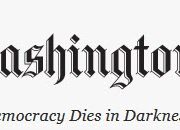Incumbent politicians have a lot of advantages in campaigns. They have a network of donors to call on for support. They have an in with party leaders and lobbyists. Their actions and press releases often make it into news reports.
Making matters worse, in many states, incumbents tilt campaign laws to favor their re-election. By imposing low limits on campaign contributions, legislators can force their opponents to spend more time fundraising instead of speaking with voters. Unfortunately, a new index developed at the Institute for Free Speech has just named Maryland one of the five worst states in the nation at protecting political giving freedom. In these states, challengers and political newcomers struggle to get their message out.
These candidates often won’t know they’re running until election year. Then, they may have to win a primary before worrying about success in November. Meanwhile, incumbents have their entire term to rub elbows with powerful people and increase their name recognition with voters.
Rich and powerful choose sides in Maryland governor’s race
The result is a major head start for incumbents, and challengers can’t catch up if contribution limits are too low. Recognizing this problem, the U.S. Supreme Court ruled in 2006 that contribution limits can be unconstitutional if they are “too low and too strict.” The court observed that such low limits can “harm the electoral process by preventing challengers from mounting effective campaigns against incumbent officeholders, thereby reducing democratic accountability.”
Yet according to our research at the Institute for Free Speech, many states maintain low contribution limits that hinder the political process and restrict First Amendment rights. In a new Free Speech Index on political giving, Maryland, along with 10 other states, receives an “F” grade.
By the numbers: 2018 Maryland election campaign finances
Maryland’s failing grade is due largely to the state’s restrictions on political parties. A majority of states place no limit on individual giving to parties, but Maryland limits both the amount individuals can give to parties and the amount of support parties can provide to their candidates, effectively doubly restricting free speech and association. Despite increasing limits for individuals in 2013, Maryland still has some of the lowest in the country.
Maryland is also one of only a few states with a four-year election cycle, meaning donors can give the maximum amount less often than in the vast majority of states. On top of all this, these limits aren’t adjusted for inflation, meaning a citizen’s ability to support candidates will decline each election cycle.
Maryland has tried to bolster campaigns for governor by offering taxpayer funds to candidates, and a few Maryland counties are also experimenting (or may soon) with taxpayer funding of campaigns. These programs impose additional restrictions on a candidate’s fundraising and spending, but in return they allow candidates to receive government funding, either in a lump sum or in proportion to the amount of private donations they earn.
Gov. Larry Hogan has large cash advantage over Democratic rivals, with over $9M in the bank
However, the experience of other states and cities shows that these programs are easily gamed by savvy political actors seeking to bilk the system. They fail to change the makeup of legislatures or increase voter turnout, lending credence to anecdotal evidence that plugged-in incumbents, not upstart challengers, benefit when the government funds campaigns. A better path is simply to allow Marylanders to give as they please to the candidates of their choice.
In all the debate over what can go wrong when people give money to candidates, we rarely stop to consider the benefits. Making a donation to a candidate or group with shared beliefs is one of the simplest and most effective ways for Americans to make their voices heard. These contributions fund campaign spending that raises awareness and interest in elections, especially among those least interested in government.
Contribution limits stand in the way of this process. They hinder candidates trying to spread their message and make it harder for voters to learn about the choices they’ll be asked to make on Election Day. Perhaps most disappointing of all, they hobble political newcomers trying to shake up the system.
Not all states perform poorly in the Institute for Free Speech’s Index. Eleven states earn “A” grades and allow individuals to donate without limit to the candidates, parties and groups of their choice. Short of that goal, most states can significantly improve their grade by implementing simple reforms, such as adjusting limits for inflation.
States can’t erase all the advantages that come with incumbency, but they can empower challengers and give them a real chance to compete. Until then, citizens of Maryland must make do with a democracy that is less vibrant and less free thanks to ineffective limits on the freedom to support candidates and causes.
This post originally ran in The Baltimore Sun on March 27th 2018.














